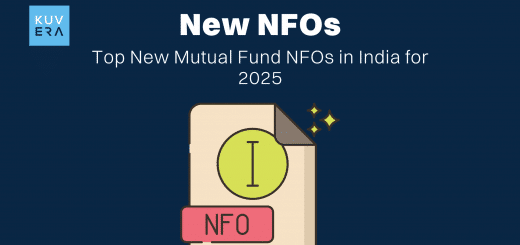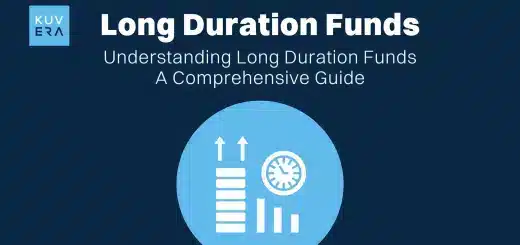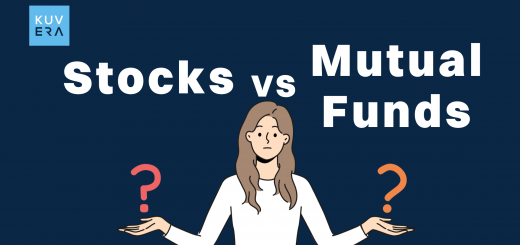Confused about choosing an ETF vs index fund? The world of investing is filled with choices, and two popular options and comparisons that often come up in conversations are Exchange-Traded Funds (ETFs) vs Index Funds. Recently, with the launch of new ETFs focusing on sustainable investments and the growing popularity of index funds in India, investors are increasingly curious about these two investment vehicles.
Start investing in Index Funds.
But what sets them apart? More importantly, which one is right for you? Let’s dive in and find out more on ETF vs index fund.
What Are Index Funds?
Index funds are mutual funds designed to replicate the performance of a specific market index, such as the Nifty 50 or the S&P 500. The fund’s strategy is simple: match the components of the index, aiming to mirror its returns. This passive investment strategy is appealing because it offers broad market exposure, low costs, and simplicity.
Them working for you, while you Netflix and chill.#Memes pic.twitter.com/Sm0ZVWbQHV
— Kuvera (@Kuvera_In) June 27, 2024
For instance, if the Nifty 50 index rises by 10%, your index fund should, in theory, rise by a similar amount, minus a tiny fee for management. There’s no active management involved; the fund merely follows the index. This approach has made index funds incredibly popular, especially for those looking to invest in a broad market segment without picking individual stocks.
Index funds can be perfect for those of us who love the idea of long-term and hands-off investing. You put your money in, check it once in a while, and watch it grow like a well-watered plant.
For a deeper dive into how index funds work and their benefits, check this.
What Are ETFs?
ETFs, or Exchange-Traded Funds, are also designed to track the performance of an index, commodity, or basket of assets. However, unlike index funds, ETFs can be traded on stock exchanges just like individual stocks. This means you can buy and sell them throughout the trading day at market prices, which can fluctuate.
ETFs have gained significant traction recently, especially with innovations like sector-specific ETFs and those focused on Environmental, Social, and Governance (ESG) criteria.
ETFs are great for investors who want more control and flexibility. You can make quick moves, trade with precision, and even dabble in some advanced strategies if you’re feeling brave.
Look for various ETFs as per AUM, NAV and returns here.
ETF vs Index Fund
While both ETFs and index funds aim to track an index and offer low-cost investment options, there are key differences between them that could influence your choice.
1. Trading Mechanics
ETFs: As mentioned earlier, ETFs are traded on stock exchanges throughout the day. This intraday trading capability allows for more precise entry and exit points, and the price of an ETF can vary minute by minute based on market demand.
Index Funds: These are traded only once per day after the market closes. The price at which you buy or sell an index fund is based on the Net Asset Value (NAV), which is calculated at the end of the trading day. This means there’s no way to take advantage of intraday price movements.
2. Pricing
ETFs: The price of an ETF is determined by market forces during the trading day and may trade at a premium or discount to its actual NAV. This price fluctuation is due to factors like demand, supply, and overall market conditions.
Index Funds: The NAV is calculated at the end of the day based on the value of the underlying assets, and all transactions occur at that NAV, ensuring you always buy or sell at the actual value of the assets in the fund.
3. Minimum Investment
ETFs: You can buy as little as one share of an ETF, making it accessible for investors with smaller amounts of capital. There’s no minimum investment beyond the price of one share.
Index Funds: Many index funds require a minimum investment, which can vary from fund to fund. This can sometimes be a barrier for small investors.
4. Liquidity
ETFs: ETFs offer higher liquidity since they are traded like stocks. You can buy or sell them anytime during market hours, giving you instant access to your money.
Index Funds: While index funds are generally liquid, you can only redeem them at the end of the trading day. This means there might be a delay in accessing your funds.
5. Fees and Costs
ETFs: ETFs usually have lower expense ratios compared to index funds because they are passively managed and have lower operational costs. However, they do incur brokerage fees with each trade, which can add up if you trade frequently.
Index Funds: Index funds generally have slightly higher expense ratios than ETFs. There are no brokerage fees involved, but some funds might have sales loads or redemption fees.
6. Flexibility
ETFs: ETFs are highly flexible investment vehicles. You can trade them on margin, short-sell, and even use them in options strategies. This flexibility appeals to active traders and sophisticated investors.
Index Funds: Index funds are much more straightforward, with no opportunities for advanced trading strategies. They are more suited to investors who prefer a simple, long-term investment approach.
Summary: Key Differences in a Table
| Features | ETFs | Index Funds |
|---|---|---|
| Trading Mechanics | Traded on exchanges throughout the day | Bought/sold at NAV after market close |
| Pricing | Prices fluctuate intraday | Priced at end-of-day NAV |
| Minimum Investment | No minimum beyond the price of one share | Often has a minimum investment requirement |
| Liquidity | High liquidity, can be sold anytime during market hours | Can only be redeemed at the end of the day |
| Fees and Costs | Lower expense ratios but involves brokerage fees | Slightly higher expense ratios, no brokerage fees |
| Flexibility | Can be bought on margin, short-sold, and traded using options | No such flexibility, ideal for long-term investments |
ETFs vs Index Funds: Which Should You Choose?
So, how do you decide between an ETF and an index fund? It largely depends on your investment goals, trading habits, and personal preferences.
When to Choose ETFs?
1. To become an Active Trader
If you like the flexibility of buying and selling during market hours, ETFs are your go-to. You can take advantage of price movements throughout the day.
2. For Lower Fees
If you’re fee-conscious, ETFs typically have lower expense ratios (not lower than index funds). However, be mindful of the brokerage fees.
When can you choose Index Funds?
Case 1: You are Looking for Simplicity
If you’re looking for a straightforward, buy-and-hold investment, index funds are ideal. You don’t need to worry about intraday price fluctuations.
Case 2: You want Automatic Investments
If you prefer setting up a systematic investment plan (SIP) without actively trading, index funds are better suited.
Case 3: You don’t want any Brokerage Hassles
For those who don’t want to open a brokerage account or deal with trading, index funds offer a hassle-free alternative.
Have you made an investment decision? Check out the Kuvera portal and Sign up to implement it with ease.
Wrapping Up
When it comes to “ETF vs Index Fund,” there’s no one-size-fits-all answer. Both have their unique benefits, and the best choice depends on your individual needs and investment style.
Whichever you choose, both ETFs and index funds are excellent vehicles for building wealth over time, offering low-cost exposure to a diversified portfolio.
Interested in how we think about the markets?
Read more: Zen And The Art Of Investing
Watch here: Investing In Passive Funds
Start investing through a platform that brings goal planning and investing to your fingertips. Visit kuvera.in to discover Direct Plans of Mutual Funds and Fixed Deposits and start investing today.
AREVUK Advisory Services Pvt Ltd | SEBI Registration No. INA200005166
DISCLAIMER: Mutual Fund investments are subject to market risks. Read all scheme related documents carefully. Registration granted by SEBI, membership of BASL (in case of IAs) and certification from NISM in no way guarantee performance of the intermediary or provide any assurance of returns to investors. Investments in securities market are subject to market risks. Read all the related documents carefully before investing. The securities quoted are for illustration only and are not recommendatory.












